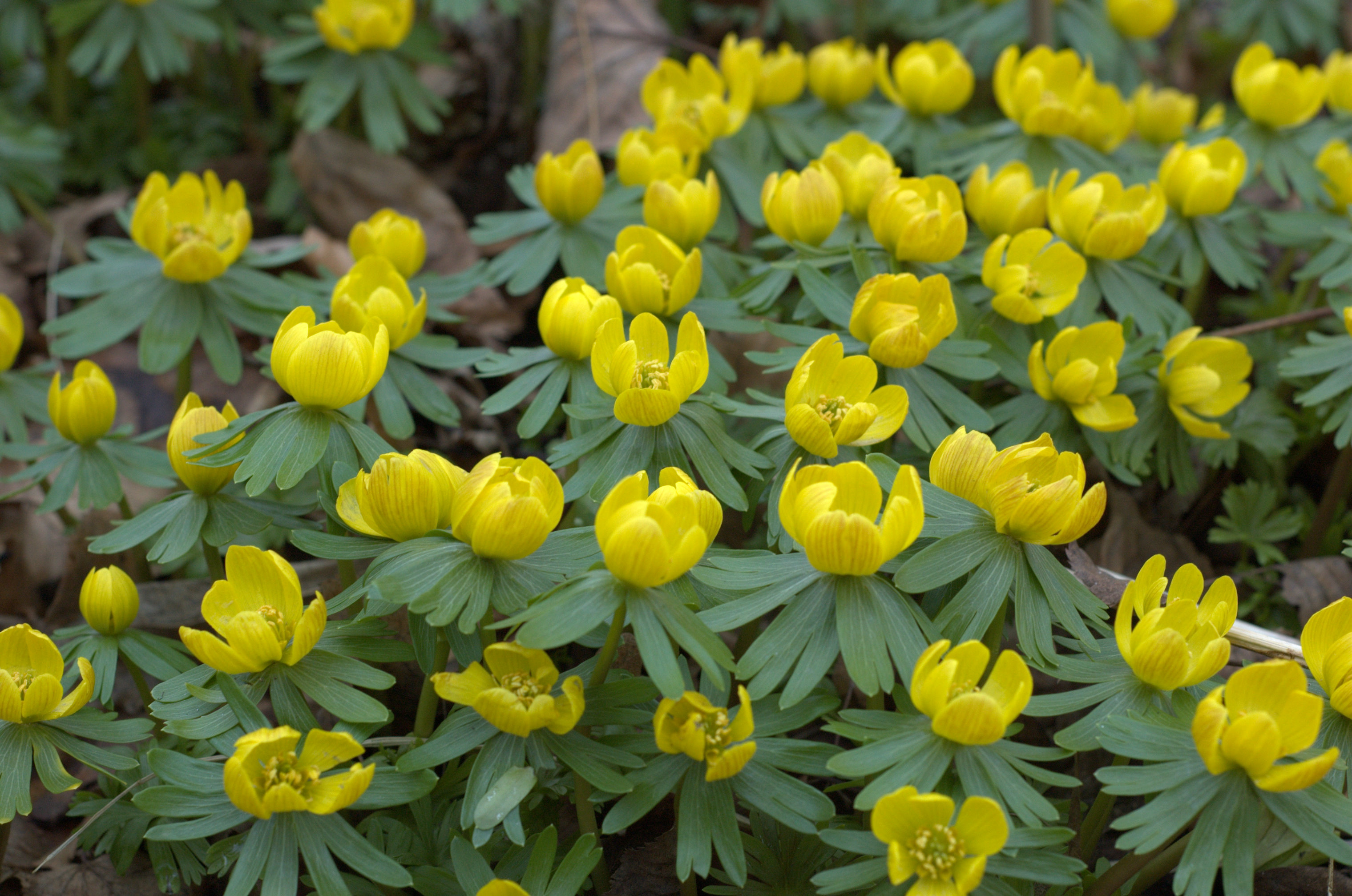Eranthus hyemalis
Common name: winter aconite
Family: Renunculaceae
Leaf: actually not considered 'true leaves', but are actually leaf-like bracts that subtend the flowers (like a collar), linear and narrow, on this very low (up to 3" tall) solitary flower stalk.
Flowers: cup-shaped six sepals are bright yellow and petaloid, with showy yellow stamens, blooming late winter/ early spring
Habit: tuberous rooted herbacous perennial; Form: very low groundcover
Height: up to 4"; Form: up to 2"
Culture: Hardy in USDA zones 3-8. Best planted in moist, fertile soils in full sun to part shade. Will die down completely after spring bloom- so be mindful of the subterranean tubers the rest of the year. Can be dug up and divided every 3-4 years to help spread them. Can also be self-seeding- and therefore sometimes invasive. Very poisonous if consumed. Plant tubers 1-3" deep, no later than September. soaking the tubers for 24 hours in lukewarm water before planting can help with its overall growth and development.
Uses: winter bloom, woodland groundcover, slope groundcover, a planting below a decidous tree, planted with Galanthus sp.- another late winter-flowering woodland small flower.
Origin: Europe



No comments:
Post a Comment